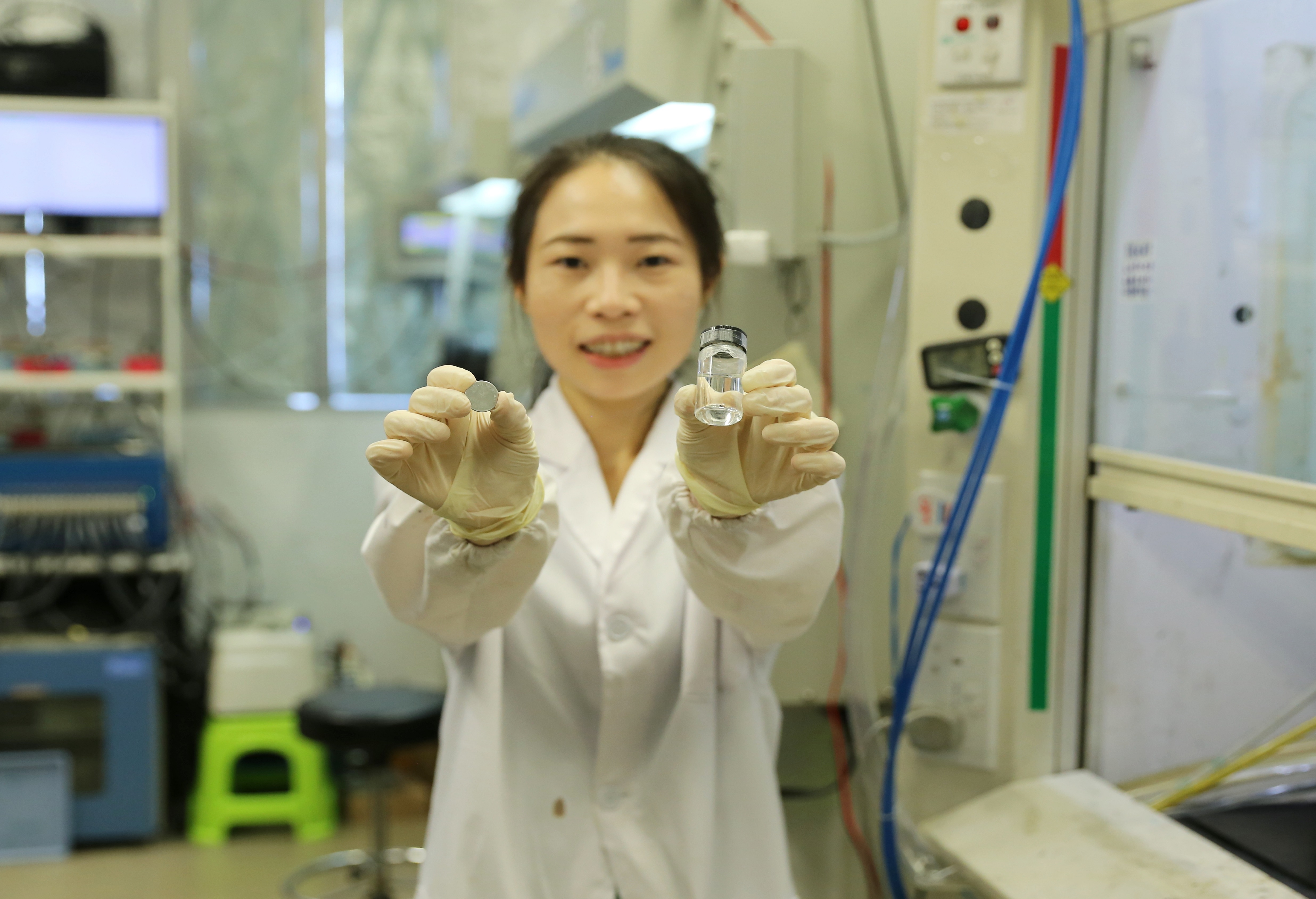Prof. Yi-Chun Lu from the Department of Mechanical and Automation Engineering is being selected as one of the top 10 winners of Falling Walls in engineering & technology for her ground-breaking invention of a safe, high-energy, low-cost, and environmentally-friendly battery that serves as a substitute for commercial lithium-ion batteries which are indispensable in our daily lives. She is the only female Asian scientist who has entered the top 10 in this category. Batteries play a crucial role in our daily lives as they power most of the electronic devices around us. Unfortunately, modern lithium-ion batteries are flammable and toxic, posing safety risks that can harm the development of clean energy. With this in mind, Professor Lu was motivated to find a replacement. She and her team have developed a new battery that replaces the electrolytes in current lithium-ion batteries with a water-based electrolyte system that can reach the same voltage of lithium-ion batteries. It is also non-flammable, non-toxic, and seven times cheaper. While water-based batteries have been around for many years, they have never been capable of generating sufficient voltage to make them useful. The solution developed by Professor Lu’s team was to adopt a water-soluble polymer called polyethylene glycol (PEG) which is commonly found in many skin care creams, medicine, and food additives. What PEG does is to act as a crowding agent, surrounding water molecules with hydrogen bonds to prevent them from decay due to changes in the water’s hydrogen-bonding structuring. As a result, the battery developed by Professor Lu can successfully expand its capacity to 3.2 volts, making it competitive with the low end of the lithium-ion battery market. About the Falling Walls Foundation The Falling Walls Foundation is a non-profit organization supported by the German Ministry for Education and Research. It has been hosting an annual conference since 9 November 2009, the 20th anniversary of the fall of the Berlin Wall, that showcases and celebrates the most recent breakthroughs in science and society. This year, the event was conducted online to bring together outstanding science projects and bright minds globally to inspire a discussion on how science and innovation can contribute to the state of mankind. It celebrates work in 10 scientific, innovation, and humanistic categories. |
|




